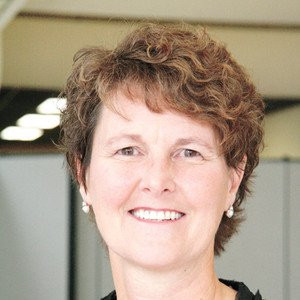Gary Sasse: Adequate Education: The Civil Rights Issue of Our Time
Wednesday, February 26, 2014
Rhode Island is confronted with a skills-jobs mismatch that will not be closed until all kids have access to adequate educational opportunities, believes Gary Sasse.
What makes these legal challenges new is that they are placing performance and accountability protocols at the center of the arguments over the constitutional correctness of school funding formulas. In Stateline, the daily news service of the Pew Charitable Trusts, David Sciarra, the Executive Director of the Education Law Center, summarized the issue as follows: “The states have promulgated content standards, assessment systems—they’ve promulgated lots of accountability. But what the states haven’t done is determine the cost of delivering standard-based education to all kids.”
Rhode Island has mandated high-stakes standards for academic achievement. These standards apply to all schools and to all kids. Beyond any shadow of a doubt establishing high accountability and performance requirements will enhance the economic well-being of both our children and the entire State. The practical concern is that this essential education reform agenda may not be realized only through threats of sanctions against students and schools. To achieve results there must be adequate support and resources.
GET THE LATEST BREAKING NEWS HERE -- SIGN UP FOR GOLOCAL FREE DAILY EBLASTChallenging the constitutionality of education funding
On March 4, 2014 the Rhode Island Supreme Court may be at the epicenter of the debate on how the Ocean State will link high stakes academic and school performance standards to public school funding.
The lawsuit, Woonsocket School Committee v. Chafee, challenges the constitutionality of the State’s current system for funding education. Under the Rhode Island Constitution, Article XII the General Assembly is responsible for “promoting” public education. The lawsuit questions whether the General Assembly has fulfilled that responsibility with respect to children and youth residing in Rhode Island’s poorer, urban communities.
Backstory
Originally, the lawsuit had been brought in February 2010 before the State had adopted the current formula for funding. The original complaint described the picture of education in Rhode Island’s urban core. These communities, according to the complaint, were home to the State’s most educationally needy students due to both their poverty and limited English proficiency. While the State imposed higher demands for academic achievement it failed to guarantee that these children would have the resources to provide the support needed to meet these higher standards. This was because the State’s system for educational funding relied heavily on local property taxes. The poorer communities, with their eroded tax bases and lower per-capita income, were simply not able to raise sufficient funding to meet the students’ needs. The State did provide aid, but that aid did not bridge the gap. The result was that a large number of youths were being woefully unprepared for the 21st Century jobs.
Shortly after bringing this lawsuit, the General Assembly enacted the current school aid formula. This legislation improved the way Rhode Island’s schools are funded. The plaintiffs, however, amended their complaint because they did not believe that the new formula had provided adequate relief.
Unfortunately, the efforts to press this lawsuit have been stymied by the Rhode Island Supreme Court’s ruling in an earlier case involving the adequacy of school financing, Sundlun v. City of Pawtucket. The plaintiffs had complained of similar conditions, and had been successful after a trial. The Supreme Court overturned that verdict. Its ruling asserted that the General Assembly only had the duty to “promote” education. At the same time, the Supreme Court appeared to hold out the possibility that it might find a constitutional violation if it were determined that children were not receiving an adequate education.
The plaintiffs’ argument
When filing the present case, the plaintiffs asserted that matters had deteriorated to that point. Originally the Court had objected to intervening in the educational system because it believed that there were no legal standards upon which it could determine if youths were receiving an adequate education. Since then the State has adopted a more definite code of standards upon which a court can base a decision.
Plaintiff’s arguments did not hold sway at the Superior Court level and the law suit was eventually dismissed.
The Woonsocket plaintiffs appealed. On March 4, 2014 the Supreme Court will hear oral arguments. If the plaintiffs are successful in overturning the Superior Court’s dismissal, the case will be remanded to Superior Court for further proceedings.
Access to adequate education
Rhode Island is confronted with a skills-jobs mismatch that will not be closed until all kids have access to adequate educational opportunities. The recent results from the New England Common Assessment Program (NECAP) dramatically demonstrated the enormous achievement gap between majority and minority students. The Providence Journal reported that 37% of African Americans and Hispanic seniors failed to meet the NECAP requirements. This compares to 12% of white seniors who are at risk of not graduating.
In the landmark school desegregation case of Brown v. Board of Education, the United States Supreme Court arrived at its decision after examining the impact that economic and social factors had on providing equal and adequate educational opportunities. Hopefully Rhode Island’s courts will recognize that access to an adequate education is the civil rights issue of our time.
Gary Sasse is Founding Director of the Hassenfeld Institute for Public Leadership at Bryant University. He is the former Executive Director Rhode Island Public Expenditure and Director of the Departments of Administration and Revenue.
Related Slideshow: RI Experts on the Biggest Issues Facing Public Education
On Friday November 22, the Hassenfeld Institute for Public Leadership at Bryant University, the Latino Policy Institute of Roger Williams University, the Rhode Island Association of School Committees, the Providence Student Union, and RI-CAN: Rhode Island Campaign for Achievement Now will host Rhode Island leaders in the public and nonprofit sectors for a symposium on "the civil rights issue of the 21st century, adequacy and equity and the State of Education in Rhode Island."
Weighing in on the the "three biggest factors" facing education in the state today are symposium participatnts Gary Sasse, Founding Director of the Hassenfeld Institute for Leadership; Christine Lopes Metcalfe, Executive Director of RI-CAN; Anna Cano-Morales, Chairwoman of the Board of Trustees, Central Falls Public Schools and Director, Latino Policy Institute at Roger Williams University; Tim Duffy, Executive Director, RI Association of School Committees; and Deborah Cylke, Superintendent of Pawtucket Public Schools.
Related Articles
- Gary Sasse: Grading the Governor’s Fiscal Stewardship
- Gary Sasse: Gubernatorial Leadership—The Defining Issue in 2014
- Gary Sasse: Is It Time For Truth In Taxation?
- Gary Sasse: Is RI’s Tax Climate Really The 5th Worst?
- Gary Sasse: Is a Constitutional Convention Really Needed?
- Gary Sasse: RI’s Leaders Need To Connect The Dots
- Gary Sasse: 3 Ways to Restore Confidence in RI’s Government
- Gary Sasse: Rekindling the American Dream in Rhode Island
- Gary Sasse: Deep in Debt in the Ocean State
- Gary Sasse: Rhode Island’s Tale of Two Crises













